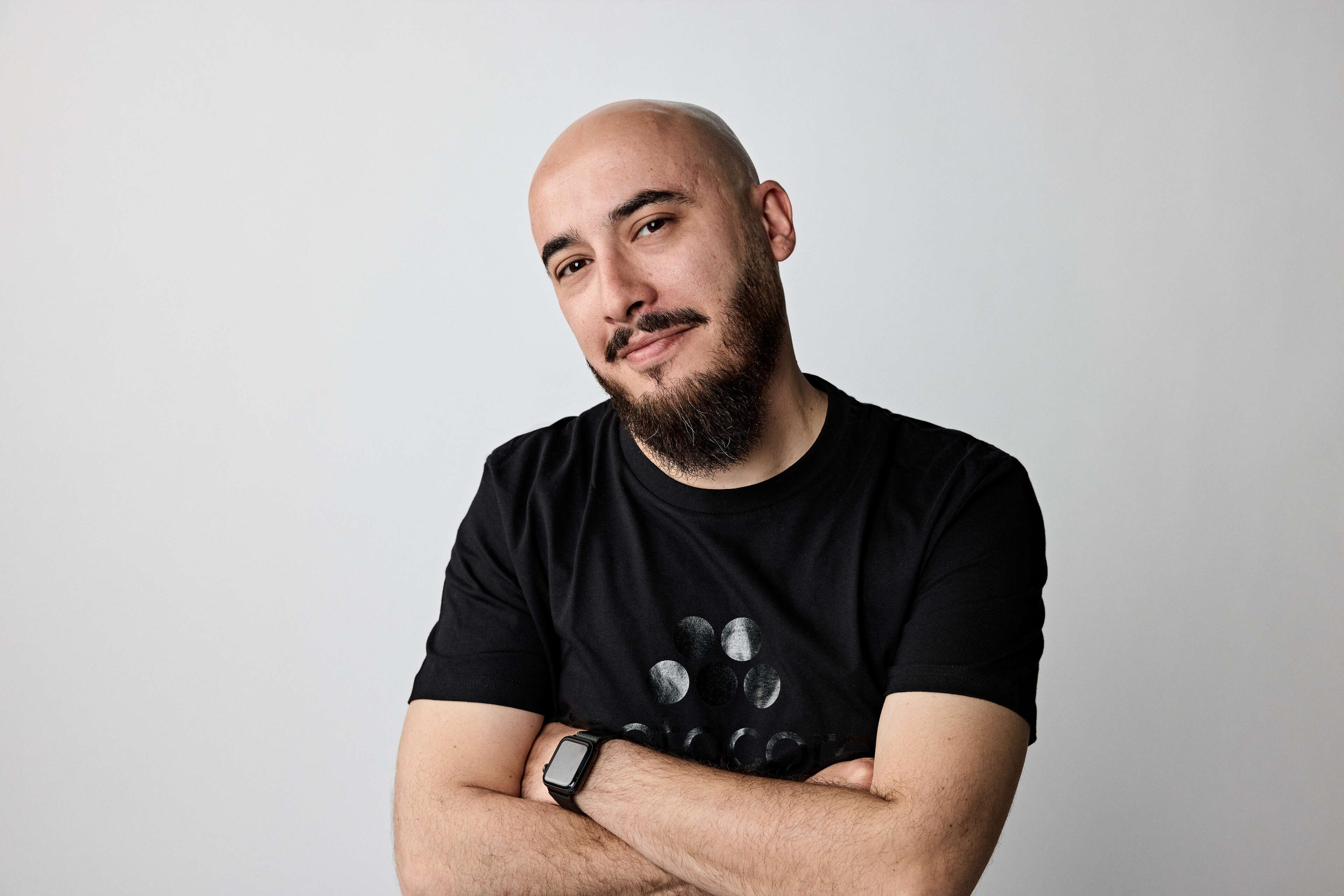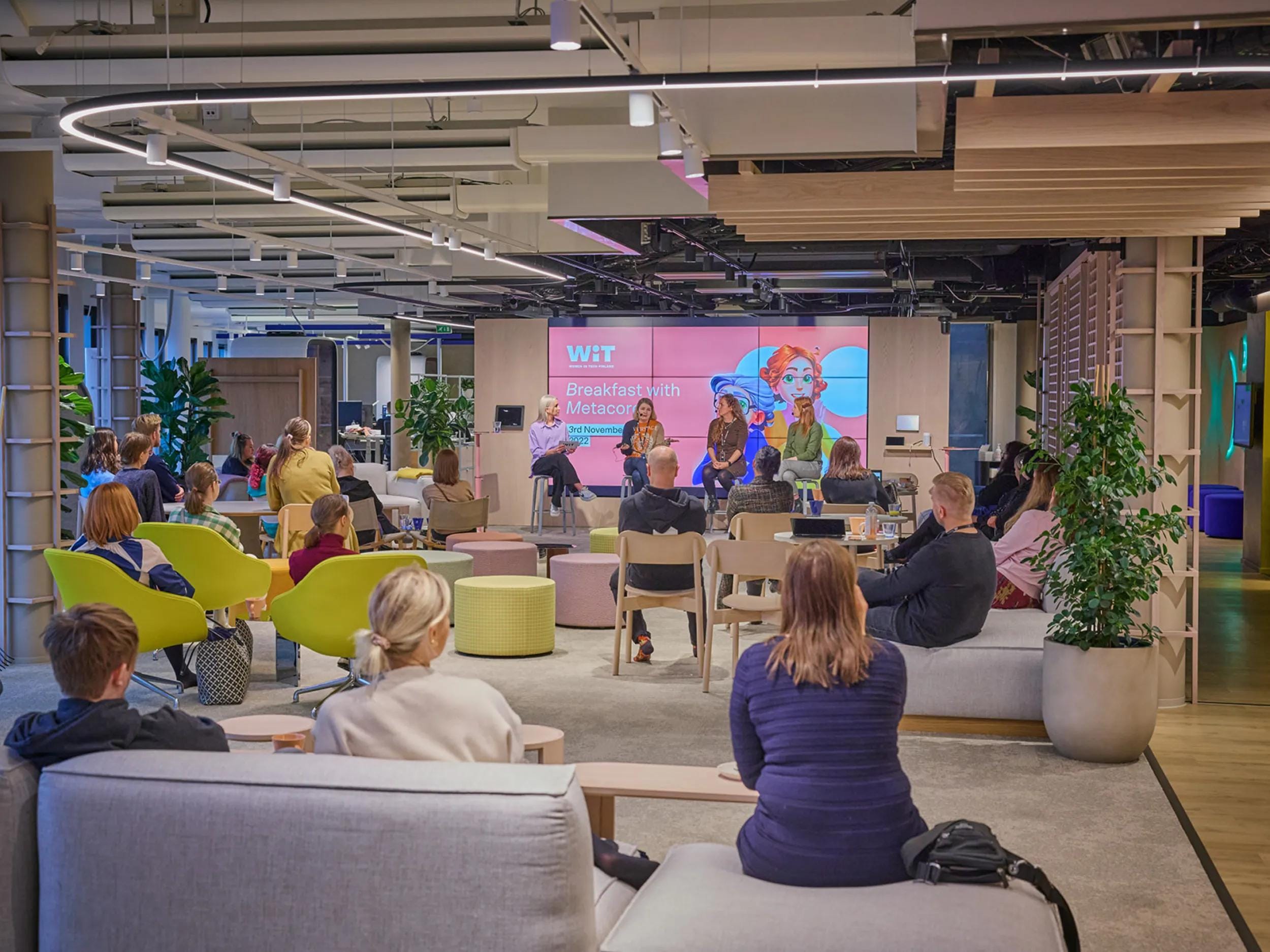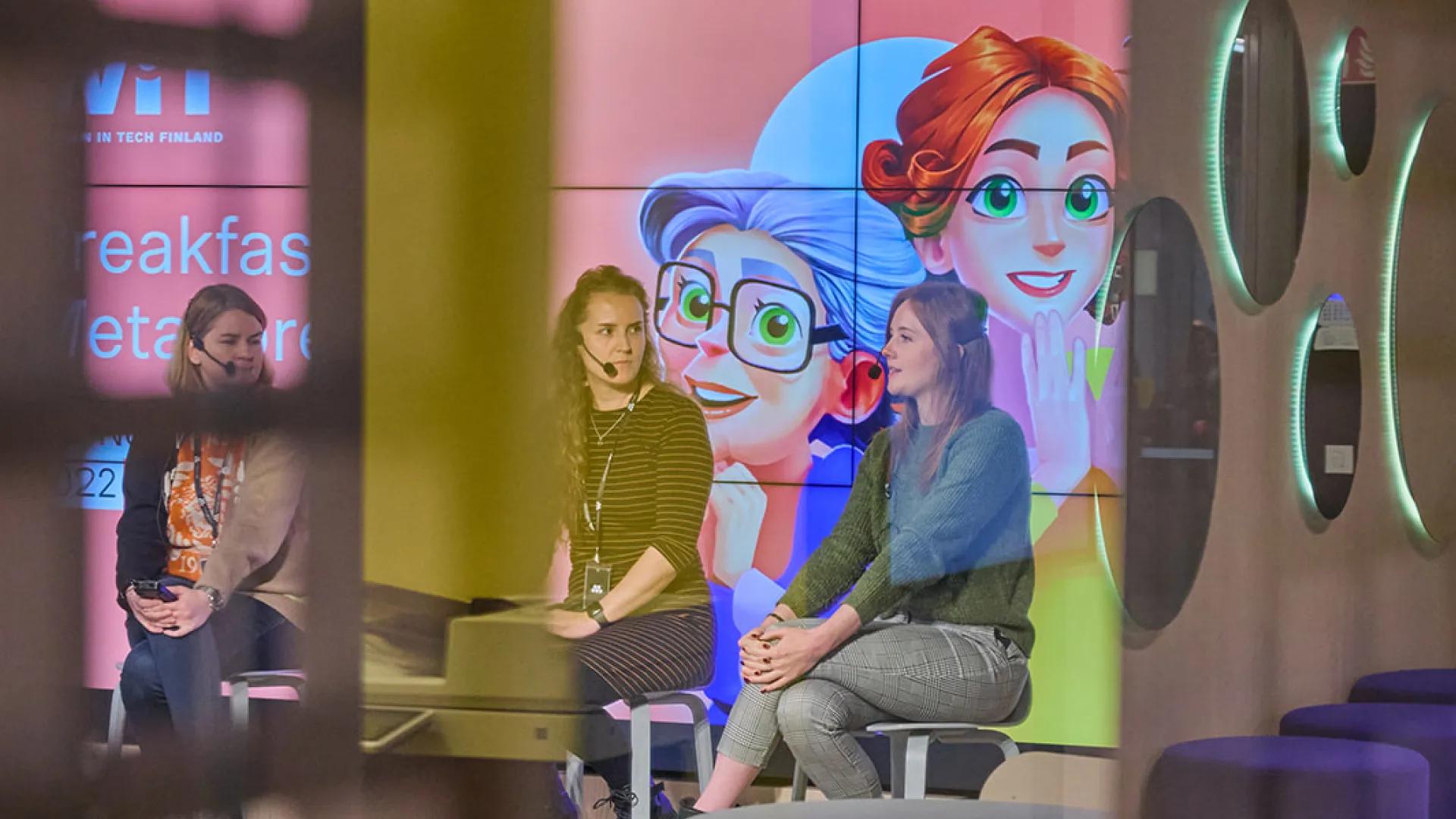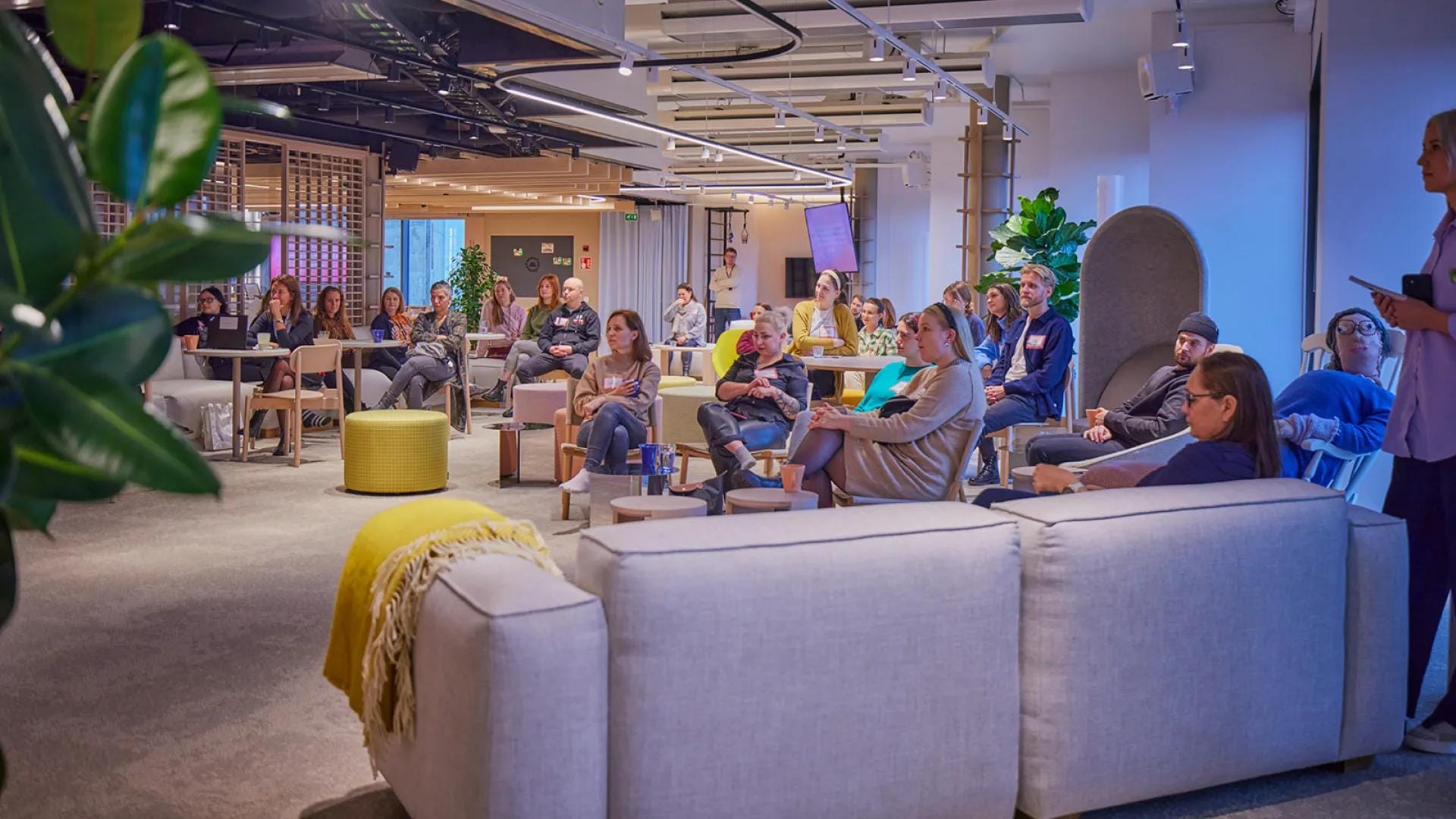
A Career in Games – The many paths to the industry


We had the opportunity to host a breakfast event together with Women in Tech Finland this November. One of the highlights of the event was a panel discussion with three game industry pros. From Metacore, Mari Wallgren, a Producer and Maria Törnroos, a Performance & Wellbeing Lead. We also had Lauren Alper, a People & Wellbeing Manager from Trailmix Games visiting.
In this post, we’ve gathered some of the highlights of the discussion.

Maria, before joining Metacore you had no previous experience in the games industry. How did you end up at your current role?
Maria Törnroos:
I love this question and I love answering it because I have a very weird career path and a pretty rocky road to come here. I like to talk about it so that people understand that it's not always straightforward and it's not always that clear. But if you have a passion, you need to pursue that.
So, I'm a psychologist by trade, and I knew already when studying that work wellbeing is what I love and what I want to develop. But I don't want to be a consultant, I want to be in-house. There weren't any positions like that available so I thought that I would deepen my understanding on the subject and do a PhD in organizational psychology. Even though I learned a lot from my academic career, I felt like there was always this practical approach missing - I wanted to develop the work environment, not just research it.
So after a lot of trials and errors, finally in 2021, I noticed that Metacore was hiring a wellbeing and performance lead – that was like a dream come true. I get to work with my passion and be around other passionate people too.
If you have a passion, you need to pursue that.
Mari, you’ve been in the industry for 15 years already. How did you first enter the game industry?
Mari Wallgren:
I'm actually originally a librarian, so I studied information science. I actually worked as a librarian for a while and it felt like I would reach my limits, like in my early twenties already. I thought, is this what I'm going to do for the next 30 years?
Back then I didn't really have a passion for games. But I figured that computers and information science are pretty close – so I ended up applying to study computer engineering. But then that also felt like a wrong move, again that was not what I wanted to do for the rest of my career.
Later I noticed that there was a programming course for adults who already had a degree, and it was related to game development. I thought, why not? Let's have a go at it, right? After the program, I actually got my first job in games as a game designer and then later on as a producer.
I thought why not? Let's have a go at it, right?
What overlapping skills are there from other industries?
Mari Wallgren:
So much. I've done multiple projects in the past and gone over thousands of games and it’s mind-boggling to me what we can learn and what skills we can utilize from people's past.
For example, an architect has come in really handy in world-building stuff or a clothes designer for customization options to a character. On the business side, there's a lot to benefit from experience in other industries, as well, business is business everywhere.
I would encourage everybody to think about what overlapping skills they have with industries like entertainment or games. There are hundreds and hundreds of those opportunities here.
Lauren Alper:
Oh, yeah, absolutely. I was surprised when I got a call back on my application as I didn't have any games industry experience so thought I wouldn't be considered – but I was completely wrong.
But as said, look at what skills you have yourself. Look at the company and look at its values. What are they passionate about? What skills do you have that you can really offer? Be courageous and get out and speak to people. That way you can find those overlapping skills that the games companies are looking for.
I would encourage everybody to think about what overlapping skills they have with industries like entertainment or games. There are hundreds and hundreds of opportunities here.
What changes have you seen in the games industry during the last decade?
Mari Wallgren:
Well changes for the better because we've learned more about our audiences and also where we are lacking as developers. We’ve started to understand that as developers, we do not know everything about our audiences and it takes hundreds of people to actually make a game happen. We use a lot of expertise from our outsourcing or vendor partners. We test a lot and there are actually hundreds and hundreds of people now in play helping us to find out how we can make the best product for the markets. And that's the biggest one.
Then obviously the culture. So now there are companies like Metacore where it is inherently in the culture, the thinking that everybody is treated equally. There's a need to give a voice to as diverse a group of developers as possible. We are living in Finland so it's very hard for us to know what somebody in some other part of the world wants and thinks about games. We need to have diverse opinions and different voices to make games for a wider audience.
It is inherently in the culture, the thinking that everybody is treated equally. There's a need to give a voice to as diverse a group of developers as possible.
What are your best tips for someone who is interested in the games industry as a career choice?
Mari Wallgren:
Well, leave an open application. Even if you don't find an open role matching your skill set, it does not mean that there wouldn't be an opportunity in a gaming company.
Please believe in yourself and believe in your skills. I know that it is a super, super tough thing to do, especially if you're female, just to put yourself out there. We keep our eyes and minds open in the application cycle to people who have that passion and an interesting skill set. So please, just leave that application if you want to.
Lauren Alper:
Think about your passions and how they align with the company. And if you're passionate about your craft, whether that's data analytics or business or design, there's a huge amount of opportunities that are available.
I never, ever thought that I would end up in the games industry. It was probably one of the last industries I saw myself in but now I can honestly say that I really do love it.
Maria Törnroos:
Yeah, be brave. Find out what you are passionate about and keep following that. It might not be easy to find your passion or your path but perseverance will lead you closer.
Find out what you are passionate about and keep following that.

Thank you to the panellists, Women in Tech Finland and everyone attending the event!
Find your passion and apply nowRelated content

